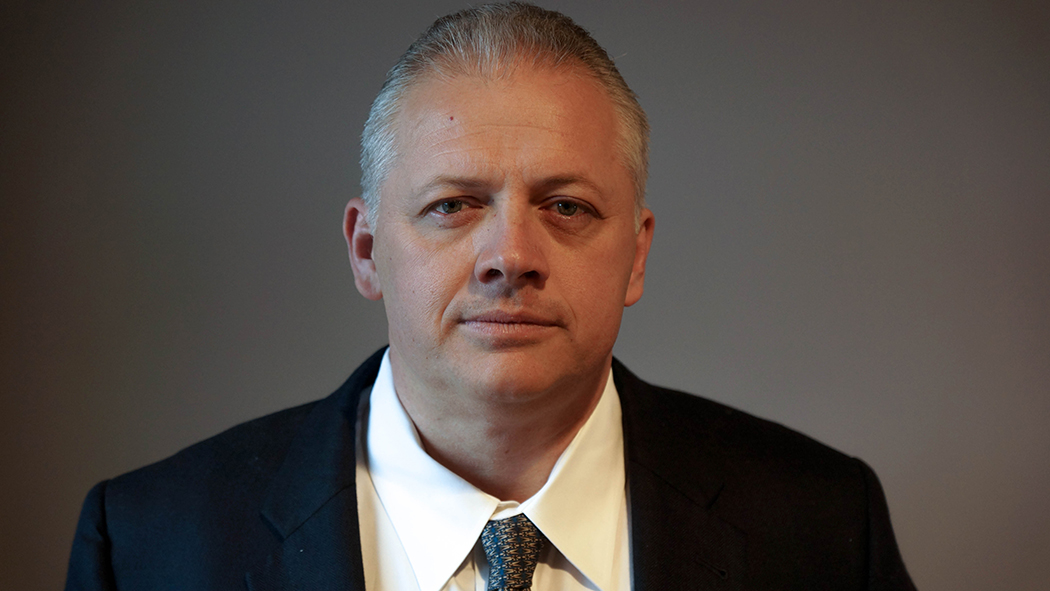By Kristin O’Donoghue
Tired of government regulations standing in the way of his wife’s whiskey distillery, Denver Riggleman decided to enter “the belly of the beast” and run for public office.
Riggleman hoped to help understand the rule-making processes and regulations that affect small businesses. “We need people who understand how that dance happens,” he said at UVA’s Democracy Biennial conference over the weekend.
Riggleman was one of a dozen panel participants at the opening event of UVA’s Miller Center of Public Affairs’ two-day conference. UVA has invested a lot in the study of democracy: The school hosts The Miller Center of Public Affairs, the Frank Batten School of Leadership and Public Policy, the Center for Politics, the Weldon Cooper Center for Public Service, the Democracy Initiative in the College of Arts and Sciences, the Karsh Center for Law and Democracy, and, most recently, the $50 million Karsh Institute for Democracy.
Friday’s panel was entitled Democracy and Capitalism. The event featured five CEOs, two UVA professors, two former presidential cabinet members, the mayor of Champaign, Illinois, the leader of a Chicago-based Muslim charity, and Riggleman.
University Provost Liz McGill introduced the roundtable event, proclaiming that the University of Virginia is “uniquely positioned” to be a leader in combating disinformation and repairing our fractured democracy.
Panelists were asked to share their thoughts on whether democracy in practice could live up to its rhetorical aspirations.
Tom Perez, Barack Obama’s secretary of labor and the chair of the Democratic National Committee, pushed against the idea that government and business interests were at odds with one another.
“When we move away from the false choice dynamic, we can really improve our democracy,” Perez said. “As long as we live in a world of false choices, it’ll be harder to solve civil rights challenges, income inequality, and climate challenges.”
Robert Bruner, moderator and dean emeritus of the Darden School of Business, said that government should begin at the “ground level,” adding that “success begins with an understanding of the customer. Democracy is messy and capitalism can be turbulent, but each delivers profound benefits to society.”
Riggleman said that after working in Congress, he gained “a new appreciation for how government and markets can work together.”
“I’m also always going to err on the side of the companies and what they have to endure,” the former Republican legislator continued.
Carolyn Miles, former president and CEO of Save the Children and current special advisor and executive fellow at Darden, said she sees hope in Darden students who demonstrate a commitment to diversity, equity, and inclusion and environmental, social, and governance initiatives.
Darden professor R. Edward Freeman said that it’s possible to create a system that allows businesses to be both sustainable and successful, but that the country’s policymakers have to “see the need to do it.”
UVA students lambaste Lawn poster regulations
“I think without freedom of speech and open inquiry, you just can’t have a functioning university,” says Emma Camp, a UVA student who lives on the Lawn.
The doors of UVA’s Lawn rooms have become the latest stage for campus free-speech debates. Last year, a student hung a floor-to-ceiling “Fuck UVA” sign on her Lawn room door. That prompted the university to pass new regulations limiting the size of what students are allowed to display on the hallowed Lawn. This week, Camp hung a poster criticizing the poster regulations, and the school’s facilities management team took it down.
The new rules require all signage to be affixed to two message boards on the Lawn doors. Some of the boards are less than 8.5 inches wide, making it impossible to hang a regular sheet of paper.
Noah Strike hung an advertisement for a Planned Parenthood volunteer opportunity on his door last week. Soon after, facilities management asked him to either remove the poster or trim it to fit his 7-inch message board. Strike cut the edge off the paper and hung it back up.
“It was very confrontational,” he says. “We got a knock on the door and they told us we had to take stuff down, and they refused to leave until we did.”
Camp knew she was breaking the rules when she affixed a large sign with the full text of the First Amendment on her door on September 17. But she felt it was important to point out the hypocrisy of the new policy. “When students use freedom of expression in a way they don’t like, the reaction is to limit speech,” she says. “And to me that’s deeply hypocritical.”—Amelia Delphos
